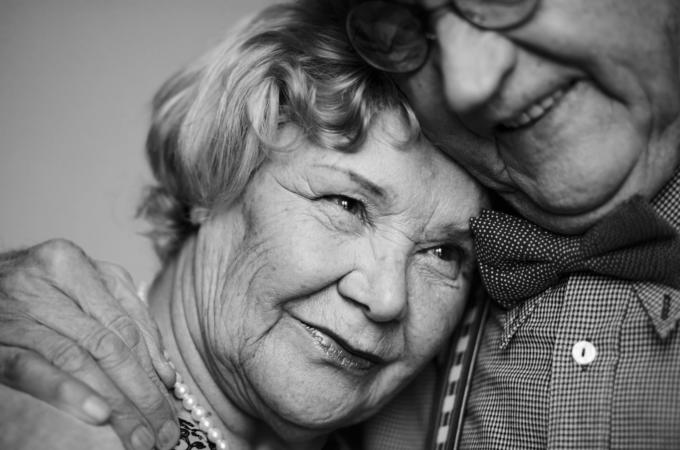Making something good out of past regrets
As we get older, our relationship to the past becomes increasingly complicated. Our sense of self is interwoven with past relationships, memories and unresolved emotions. Maria Benoit, director of Mission and Pastoral Care at Youville Assisted Living Residences, believes that finding significance in this web of past experience is integral to our sense of well-being in the present.
Benoit has led reflection groups and "life reviews" designed to facilitate this process.
"In Life Review, we explore our most significant memories and ask, 'Why was this important to me? How does this event reflect on my life and my values?'" says Benoit. "This starts the process of individuation."
Inevitably, a thorough life review can bring us face to face with our biggest regrets. Experiences that we might have preferred never to revisit can arise unexpectedly and make us cringe. Though uncomfortable, this is not necessarily a bad thing. The very fact of regretting indicates that we have grown as people -- otherwise we would not be able to view our former selves from a critical distance. At the same time, we still sense that it was "us" behaving in a way we now see as ill-advised. The sense of lingering responsibility for our past actions leads us forward, and can even be empowering. This is our opportunity to make concrete plans, to resolve to be fairer, to worry less, to spend more time with a loved one. In this way, regrets are like distant calls to action, at once tugging at us from the past while urging us forward into the future.
The Legacy Project
In 2012, Dr. Karl Pillemer, a professor at Cornell University, wanted to know what older adults regretted most in their lives. He figured that those who had lived the longest would have the most experience reflecting on their regrets, and might have useful wisdom to offer. The results of his study, called "The Legacy Project," were surprising. With over 1,200 interview subjects surveyed, Dr. Pillemer found the same theme popping up. One after another, seniors expressed variations on the same basic regret: "I wish I hadn't spent so much of my life worrying."
In a summary of his findings, Dr. Pillemer writes that worry is "a crippling feature of our daily existence ... according to elders, worry wastes your very limited and precious lifetime. By poisoning the present moment, you lose days, months, or years that you can never recover."
By sharing their regrets, older adults were able to impart valuable lessons to younger generations about avoiding excessive worry. Dr. Pillemer summed up the three primary lessons they had to offer:
-- Focus on the short-term. Rather than worrying about an indefinite future, take things one day at a time.
-- Identify clearly and precisely what is worrying you. Then make a concrete plan to eliminate that worry.
-- Embrace an attitude of acceptance. Acknowledge the variables that are out of your control.
Different Views on Regret
Not everyone views regret as useful. Actor William Shatner once said, "Regret is the worst human emotion. If you took another road, you might have fallen off a cliff. I'm content." Shatner seems to be taking the leap of equating regret with a desire to rewrite history. Rather than lament the past, he prefers to embrace what he has become, accepting whatever mistakes he made along the way as inevitable.
On the other end of the spectrum, Henry David Thoreau urged readers to "make the most of your regrets; never smother your sorrow, but tend and cherish it till it comes to have a separate and integral interest. To regret deeply is to live afresh." This sentiment might strike readers as somewhat dramatic, but consider Thoreau's main point: Engaging with one's regrets can be done in a healthy way. One can experience regret without wanting to rewrite history, but with the determination to write a better future for oneself, or for others. Viewed in this light, regrets can lead to noble action, a sense of peace with self, and the revelation of important values.
Even though regrets are sometimes painful, they arise as opportunities to remind us of how far we have come and where we would like to be headed. If you are grappling with regrets, remember that you can make them as much about the future as the past.
- Adam Johnson writes for Youville Assisted Living Residences, member of Covenant Health Systems, a Catholic, multi-institutional health and elder care organization serving New England.



















